Filter by

The self, civic virtue, and public life: interdisciplinary perspectives
Introduction / Nancy E. Snow -- Can Feelings of Authenticity Help to Guide Virtuous Behavior? -- Civic Virtues, Wisdom, and Psychological Resilience -- Personal Liberty, Mutual Respect and Tolerance: From Values to Virtues -- Good Citizenship and Sustainable
- Edition
- -
- ISBN/ISSN
- 9781003367857
- Collation
- -
- Series Title
- -
- Call Number
- -

The subject's matter :self-consciousness and the body
The body may be the object we know the best. It is the only object from which we constantly receive a flow of information through sight and touch; and it is the only object we can experience from the inside, through our proprioceptive, vestibular, and visceral senses. Yet there have been very few books that have attempted to consolidate our understanding of the body as it figures in our experie…
- Edition
- -
- ISBN/ISSN
- 9780262342599
- Collation
- 1 online resource (xxi, 402 pages) :illustrations.
- Series Title
- -
- Call Number
- -

Thinking about oneself :from nonconceptual content to the concept of self
"In this book, Kristina Musholt offers a novel theory of self-consciousness, understood as the ability to think about oneself. Traditionally, self-consciousness has been central to many philosophical theories. More recently, it has become the focus of empirical investigation in psychology and neuroscience. Musholt draws both on philosophical considerations and on insights from the empirical sci…
- Edition
- -
- ISBN/ISSN
- 9780262329767
- Collation
- 1 online resource (xviii, 210 pages)
- Series Title
- -
- Call Number
- -
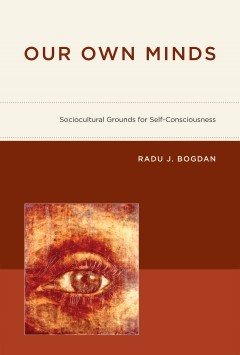
Our Own Minds: Sociocultural Grounds for Self-Consciousness
Here, Radu Bogdan takes a developmental perspective on consciousness and proposes that children's functional capacity for consciousness is assembled during development out of a variety of ontogenetic adaptations that respond mostly to sociocultural challenges specific to distinct stages of childhood.OCLC-licensed vendor bibliographic record.
- Edition
- -
- ISBN/ISSN
- 9780262289214
- Collation
- 1 online resource (xii, 210 pages).
- Series Title
- -
- Call Number
- -
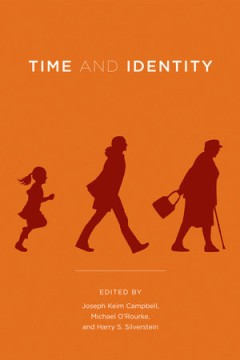
Time and identity
The concepts of time and identity seem at once unproblematic and frustratingly difficult. Time is an intricate part of our experience—it would seem that the passage of time is a prerequisite for having any experience at all—and yet recalcitrant questions about time remain. Is time real? Does time flow? Do past and future moments exist? Philosophers face similarly stubborn questions about id…
- Edition
- -
- ISBN/ISSN
- 9780262265799
- Collation
- 1 online resource (vi, 330 pages).
- Series Title
- -
- Call Number
- -
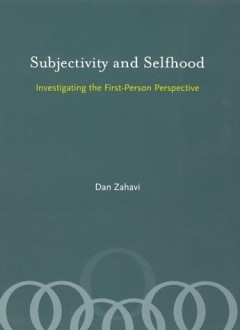
Subjectivity and Selfhood: Investigating the First-Person Perspective
A Bradford book."The relationship of self, and self-awareness, and experience: exploring classical phenomenological analyses and their relevance to contemporary discussions in consciousness research.OCLC-licensed vendor bibliographic record.
- Edition
- -
- ISBN/ISSN
- 9780262286596
- Collation
- 1 online resource (vi, 265 pages)
- Series Title
- -
- Call Number
- -
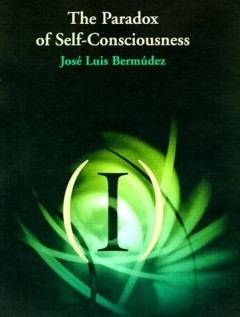
The paradox of self-consciousness
"A Bradford book."In this book, Jose Luis Bermudez addresses two fundamental problems in the philosophy and psychology of self-consciousness: (1) Can we provide a noncircular account of full-fledged self-conscious thought and language in terms of more fundamental capacities? (2) Can we explain how full-fledged self-conscious thought and language can arise in the normal course of human developme…
- Edition
- -
- ISBN/ISSN
- 0585190089
- Collation
- 1 online resource (xiv, 338 pages) :illustrations.
- Series Title
- -
- Call Number
- -
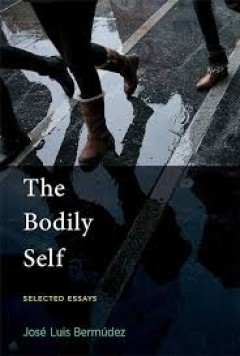
The bodily self :selected essays on self-consciousness
"These essays explore how the rich and sophisticated forms of self-consciousness with which we are most familiar -- as philosophers, psychologists, and as ordinary, reflective individuals -- depend on a complex underpinning that has been largely invisible to students of the self and self-consciousness. Jos?e Luis Berm?udez, extending the insights of his groundbreaking 1998 book, The Paradox of …
- Edition
- -
- ISBN/ISSN
- 9780262344661
- Collation
- 1 online resource (viii, 303 pages) :illustrations
- Series Title
- -
- Call Number
- -
 Computer Science, Information & General Works
Computer Science, Information & General Works  Philosophy & Psychology
Philosophy & Psychology  Religion
Religion  Social Sciences
Social Sciences  Language
Language  Pure Science
Pure Science  Applied Sciences
Applied Sciences  Art & Recreation
Art & Recreation  Literature
Literature  History & Geography
History & Geography